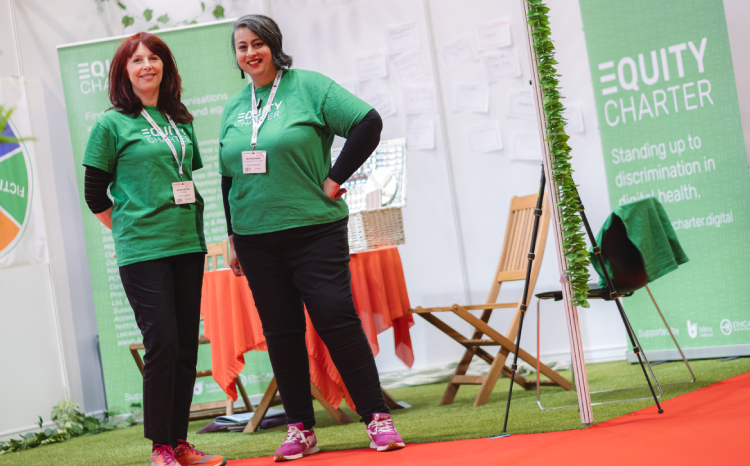Rewired keynote Jacqueline de Rojas talks technology and silver bullets
- 11 February 2020

As one of the most influential leaders in the UK tech industry, Jacqueline de Rojas is a woman of numerous titles and accolades. Currently president of techUK, de Rojas (CBE) is best known for her commitment to promoting diversity within the sector, channelling her commitment through a number of advisory and ambassador positions at Accelerate Her, BigYouthGroup and the Girl Guiding Association.
Speaking to Digital Health News ahead of her keynote address at Rewired 2020, Jacqueline discusses the role of women in driving NHS technology forward, and why inclusion in all forms is a game from which the entire industry stands to gain.
“I think everyone would agree that it’s the right thing to have equality: for noble causes, but secondly because we will simply not have enough talent if we don’t start recruiting from diverse quarters,” Jacqueline says.
“The other thing is that, with the increasing dependency on technology as we move forward, if an algorithm is going to decide whether you get that place at university, or that mortgage, or that job interview, we had better make sure that the people designing the tech are diverse.”
Technology that serves society
Tackling bias in artificial intelligence (AI) algorithms is a subject receiving increased prominence as the uptake of the technology becomes more widespread.
Specifically, ensuring datasets used for machine learning and analytics purposes reflect the breadth of a population are paramount to their success, and ensuring health inequalities aren’t exacerbated.
“I think that’s probably the most important aspect, quite apart from the fact that diverse teams make better business decisions,” Jacqueline says.
“Not just in terms of talent but making sure that the tech that is created as a result of it is not based on a biased dataset and a biased mindset.
“Otherwise, we will be building a world that doesn’t work for everybody.”
The importance of support networks
The NHS is one of the most proudly diverse workforces in the country, yet still suffers from a chronic skills and wage gap.
Women are particularly under-represented in leadership roles, and despite a predominantly female work force, 2019 figures revealed that male doctors in the NHS earn an average of 17% more than their female colleagues.
While there is still a long way to go – with Jacqueline making a point to highlight that the pay gap is illegal under both the Equal Pay Act 1970 and the Equality Act of 2010 – visible efforts are underway to improve the representation of woman from black and ethnic minority (BAME) backgrounds.
“I think the Shuri network has done such a great job to create a space where workers can be supported, right from nurses up to tech,” Jacqueline tells Digital Health.
“It’s no secret that networks and support networks really matter.”
Yet the bigger issue, she adds, is attacking the culture: ensuring that women in senior positions are supported in their role, and creating a succession plan that feeds diversity and makes it endemic within the industry.
“You can employ as many diverse people as you like, but if you don’t then train leaders to be more tolerant, or you create leaders who also look like those at the top, then it doesn’t help transform something as large as the NHS,” Jacqueline adds.
Of course, inclusion doesn’t just mean employing more women, Jacqueline explains: expanding talent pools beyond major cities and bringing in people from across the autism and Asperger’s spectrum are also key components to creating technology that serves everyone.
“I often talk about #notjustlondon because you are in danger of just solving it for the large cities, versus for everybody.
“That means we’ve got to have great infrastructure, but also talk about diversity and inclusion in all its forms, so geographical as well as neurodiversity: people who have superpowers in terms of Asperger’s and autism where you can spot patterns that other people can’t. It’s just extraordinary.
“It means that we will have to be more tolerant in leadership in order to widen our view on diverse behaviours.
“We’ve got to make sure that we are recruiting both inside the country and outside the country, so it speaks to our stance in terms of looking outwards and not inwards in this post-Brexit world.”
No silver bullet
The under-representation in of women in STEM (science, technology, engineering and mathematics) roles is a problem that originates long before the career ladder, reflective of a society whose habit of assigning a pink or blue flag to a child at birth creates self-limiting beliefs about the roles they can and cannot do.
“Even in teaching, you hear so many stories of female software engineers whose careers teacher told them: ‘No no, tech isn’t for you – it’s really for boys’,” says Jacqueline.
“It’s subtle, but it’s that 30-second soundbite that nudges people in the wrong direction – these little, two-millimetre adjustments that say: ‘that’s not for you’ – and you believe it, and it becomes part of your programming.”
The problem is down for all of us to solve, says Jacqueline. “I don’t know if we can any longer say the government has to fix it, or the Department of Education has to fix it. I think this is an everybody problem. Because I don’t think the cavalry is coming”
“I would love to say that there’s a silver bullet, but I think it’s a part that we all have to play – to make sure that we fly the flag for diversity whenever we get the opportunity to influence a young person.”
Jacqueline de Rojas will be speaking at the Digital Health Rewired Leadership Summit, taking place at Olympia London on Tuesday 3 March 2020.
For the full Rewired 2020 programme and speaker lineup, visit digitalhealthrewired.com





